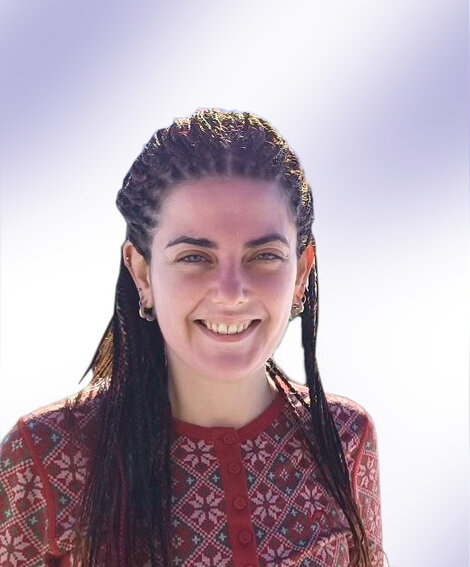AI and Multi-Omics Data
Background
Nowadays, machine learning systems are about to expand into every area of our lives, including extremely sensitive domains such as medicine. Thus, finding ways to foster justified trust in machine learning models becomes increasingly essential, e.g., by identifying and implementing properties that render these methods trustworthy.
To address this challenge, an interdisciplinary approach is necessary including perspectives from medicine, biology, computer science, mathematics, and ethics.
This group is affiliated with the Lower Saxony Centre for AI and Causal Methods in Medicine (CAIMed), which provides a collaborative framework for realizing such complex, cross-disciplinary research projects.

Group Leader: Prof. Dr. Kerstin Lenhof
Research Foci - Goals
The Integrative Bioinformatics group develops trustworthy machine learning methods for medical applications, with a particular focus on oncology. In our research, we place emphasis on the reliability, robustness, and interpretability of machine learning models, alongside ethical considerations and human factors relevant to clinical deployment. We aim to ensure that these technologies align with societal needs and ethical standards.
A central question we address is how to generate trustworthy recommendations for anti-cancer drug treatments. While oncology is our primary application domain, the methods we develop are broadly applicable: we work on conformal prediction, multi-omics integration strategies, and transfer learning. We are also highly interested in conducting interview studies and surveys to understand the needs of stakeholders, e.g., medical doctors or patients. Currently, we are also exploring how drug recommendation methods from oncology can be adapted to other areas, such as predicting bacterial resistance.
Current Projects
- Trustworthy anti-cancer drug treatment prioritization
- Transfer learning from bulk cell lines to single cells
- Bacterial resistance prediction
Selected Publications
Lenhof, K., Rolli, L.-M., Buhr L., Roth S., Binkyte-Sadauskiene, R., Schicktanz S., Fritz, M., Volkamer, A., Beerenwinkel, N.
The trustworthiness landscape in machine learning: a conceptual guide with applications in medicine.
Preprint, zenodo, Published November 12, 2025
Eckhart, L., Lenhof, K., Herrmann, L., Rolli, L. M., & Lenhof, H. P. (2025).
How to predict effective drug combinations–moving beyond synergy scores.
iScience, 28(6).
Lenhof, K., Eckhart, L., Rolli, L. M., Volkamer, A., & Lenhof, H. P. (2024).
Reliable anti-cancer drug sensitivity prediction and prioritization.
Scientific Reports, 14(1), 12303.
Lenhof, K., Eckhart, L., Rolli, L. M., & Lenhof, H. P. (2024).
Trust me if you can: a survey on reliability and interpretability of machine learning approaches for drug sensitivity prediction in cancer.
Briefings in Bioinformatics, 25(5), bbae379.
Members of the group
Kerstin Lenhof (W1ttW2 professorship)
Lea Eckhart (postdoctoral researcher)
PHD students
Lutz Herrmann
Master students
Zyad Ahmed (shared with Andrea Volkamer, UdS)
Michael Bohl (shared with Marina Esteban-Medina, Beerenwinkel group)
Saliha Seray Yagci
Interns
Sanaa Sangien
Open Position
Intern, student research assistant, or master’s thesis candidate
We are looking for an intern, student research assistant, or master’s thesis candidate (specific details will depend on the successful applicant) from Georg-August-Universität Göttingen <https://www.linkedin.com/company/-university-of-goettingen/> . The project focuses on an ethical question approached using computer science techniques—most likely involving graph algorithms.
Your profile:
- Strong interest in addressing ethical questions
- Excellent analytical thinking skills
- Solid knowledge of (graph) algorithms and data structures
- Solid programming skills
The ideal candidate will have a computer science background and a passion for contributing to the greater good of society!
For clarification: unlike most projects in our group, this one does not involve biological, medical, pharmaceutical, or life science questions.
How to apply:
Please send your application to me and Daniela Großmann. Your application should include:
- 2–3 sentences explaining why you are a good fit for this position
- Your CV
Submitting a transcript of records is highly encouraged.
More information about the position will be shared upon request!
Bachelor and master theses
We are always looking for motivated students to join our research group! If you have a strong background in bioinformatics, computational biology, computer science, or machine learning, we’d love to hear from you. We also welcome students from other disciplines—especially psychology or ethics—who are interested in interdisciplinary research.
If you're interested in pursuing a bachelor’s or master’s thesis with us, please send an email to Kerstin Lenhof and Daniela Großmann.
Your message should include:
- A brief overview of your academic background
- A rough idea of how you could contribute to our group
- The name of a preferred supervisor from our team (if applicable)
- Your anticipated start date
Please do not submit a motivation letter. However, attaching your transcript of records is highly encouraged.
Important: Please include "Application for <your desired position> - Trustworthiness Matters" in the email subject to ensure that your mail will be read.